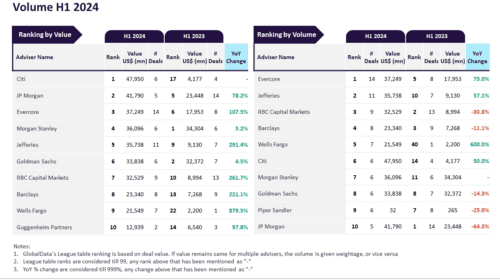Across the globe, energy companies are turning to artificial intelligence (AI) to optimize their operations, seeking to enhance efficiency and reduce costs. By leveraging AI, these companies can swiftly analyze vast amounts of data, predict equipment failures before they occur, and streamline decision-making processes. This rapid convergence of AI with traditional energy operations is driving a significant shift towards more agile and cost-effective business models in the oil and gas sector.
With the integration of AI, operations that once took weeks to complete can now be executed in a matter of hours or minutes. Real-time analytics and automation capabilities allow for the immediate adjustment of operational parameters, ensuring optimal performance and reduced energy consumption. This tech-driven advancement propels the industry forward, ensuring that oil and gas companies remain competitive in an ever-evolving market landscape.
Pioneering AI in the Energy Sector: A Primer
The oil and gas industry is transforming as AI opens doors to diverse applications. AI is revolutionizing the sector by enhancing exploration, drilling efficiency, and production processes.
The Intersection of Artificial Intelligence and Oil & Gas
Artificial intelligence has carved its niche within the oil and gas industry, merging with traditional processes to form a synergy that enhances operational capabilities. This intersection has been facilitated by advancements in data science, which allow for the effective processing and analysis of the complex datasets characteristic of oil and gas operations. AI’s ability to handle large volumes of data with speed and precision translates into more informed decision-making and strategic planning.
The industry’s adoption of AI is transforming the landscape of exploration and production. From seismic data analysis to the real-time monitoring of drilling operations, AI equips oil and gas companies with tools to navigate the uncertainties inherent in extracting natural resources. By providing deep and actionable insights, AI enables these companies to operate with greater efficiency and resilience.
Data science is pivotal in this transformation, offering the analytical horsepower to turn raw data into valuable insights. By applying machine learning and predictive analytics, AI systems can forecast trends, optimize workflows, and pinpoint areas for improvement. This data-driven approach allows for aligning operational activities with overarching business goals, ensuring the longevity and profitability of energy operations.
AI and oil & gas symbiosis signifies more than technological adoption; it represents a fundamental shift toward a more progressive, data-centric industry. Companies that embrace this shift are positioning themselves at the forefront of the energy sector, ready to capitalize on the efficiencies and opportunities presented by artificial intelligence.
From Data to Decisions: How AI Reshapes Industry Dynamics
In the energy sector, the rise of industrial AI is reshaping the very fabric of how decisions are made and operations are executed. Companies use AI to sift through data deluge, extracting actionable insights that drive operational efficiency and sustainability. This revolution in data management and analysis is providing a competitive edge to those who adeptly harness AI’s capabilities.
Industrial AI systems can identify patterns and predict outcomes with a degree of accuracy previously unattainable. In the realm of energy, this means improved equipment reliability, optimized resource allocation, and enhanced safety measures. Integrating AI into the energy sector’s operational framework has become critical in achieving business objectives and maintaining high-performance standards.
The utilization of AI in the energy sector extends beyond mere data analysis. It encompasses creating intelligent systems that can autonomously adjust to varying conditions, optimize energy distribution, and manage complex logistical challenges. The result is a more resilient and flexible operational structure capable of withstanding the dynamic nature of the energy market.
As energy companies strive to achieve the leading edge in digitalization, AI emerges as the cornerstone of their efforts. By enabling a seamless transition from data to decisions, industrial AI is not just an auxiliary tool but a transformative force redefining the energy sector’s operational landscape.
AI-Powered Exploration and Production
AI-driven predictive analytics and smart reservoir management are ushering in a new era of exploration and production, marked by unprecedented efficiency and precision.
Amplifying Discovery: AI in Oil and Gas Exploration
The search for crude oil has historically been a game of probabilities, but AI is shifting the odds in favor of the explorers. Sophisticated algorithms analyze geological data with a level of detail and speed that human experts cannot match, increasing the likelihood of discovering viable crude oil reserves. This speeds up the exploration process and makes it more cost-effective and less risky.
AI’s pivotal role in unlocking new reserves is enabling more precise subsurface mapping. The technology interprets seismic data to recommend drilling locations, identify potential hazards, and assess the quality of crude oil reservoirs. With these capabilities, AI is transforming oil and gas exploration into a more strategic and informed endeavor.
Moreover, through continuous learning and adaptation, AI models improve over time, refining their predictive power and enhancing the discovery process. As a result, energy companies can navigate the complex geological landscapes with greater confidence, ensuring that each drilling effort has the highest possible chance of success.
Ultimately, the application of AI in oil and gas exploration represents a significant leap forward in the industry’s ability to meet global energy demands. By amplifying the discovery of crude oil reserves, AI is revolutionizing exploration strategies and ensuring a more sustainable approach to resource management.
Optimizing Output: AI in Production Enhancement
Once potential oil reserves are identified, the challenge shifts to maximizing production while minimizing costs and environmental impact. AI plays a critical role in this phase, offering tools for advanced reservoir management that optimize the extraction process. Analyzing historical production data allows AI algorithms to forecast future performance and recommend adjustments to enhance output.
AI’s impact on production is multifaceted, encompassing automation of complex processes, real-time equipment monitoring, and predictive analytics to forestall potential failures. This level of oversight and control leads to more efficient operations, reducing the time and resources spent on maintenance and avoiding unplanned downtime.
In addition, AI facilitates the optimal deployment of drilling assets, ensures the efficient use of water and energy, and helps manage the environmental footprint of production activities. By integrating AI into production processes, companies can achieve a delicate balance between maximizing recovery and adhering to stringent environmental standards.
Incorporating AI into production enhancement strategies signifies a transformation in the industry that prioritizes precision, efficiency, and sustainability. Through the intelligent application of technology, the oil and gas sector is poised to meet the evolving demands of a world increasingly focused on responsible resource utilization.
Maximizing Operational Efficiency with AI
Artificial Intelligence (AI) is transforming the oil and gas industry, streamlining operations and propelling the sector towards unprecedented efficiency gains. The deployment of sophisticated AI applications enhances safety standards and reduces operational expenditures, allowing energy companies to navigate the complexities of the modern energy sector more adeptly. While AI adoption may be in its nascent stages relative to other industries, its capacity to revolutionize the oil and gas sector is becoming increasingly evident. Kumar Lakshmipathi, a principal solutions architect, emphasizes the need for the industry to embrace these technologies to monitor and improve safety, tackle safety issues like oil spills, and maintain competitiveness in a rapidly evolving landscape.
Predictive Maintenance: Preventing Downtime Before It Happens
Predictive maintenance has emerged as a revolutionary force in the oil and gas industry, mitigating the risk of unexpected equipment failures. By employing deep learning models, AI algorithms scrutinize historical data, sensor readings, and machine performance, spotting patterns and anomalies that could signal impending issues. This proactive approach allows industry players to schedule maintenance strategically during planned outages, reducing unscheduled downtime and associated maintenance costs.
These predictive maintenance systems are becoming integral to the industry’s efforts to enhance efficiency. By predicting equipment malfunctions before they occur, operations can continue with minimal interruption, ensuring a steady flow of productivity. This not only saves on maintenance costs but also extends the lifespan of critical machinery, resulting in substantial long-term savings and increased operational reliability.
Moreover, the application of AI in predictive maintenance is not limited to failure prevention. It also facilitates the optimization of maintenance schedules, ensuring that repairs are carried out only when necessary. Moving away from traditional time-based maintenance to condition-based strategies, the industry is witnessing significantly reduced unnecessary interventions and improved asset performance.
Ultimately, predictive maintenance integration into the oil and gas sector is proving indispensable. As AI technologies become more advanced and accessible, they will continue to drive down operational costs and elevate the industry standard for maintenance practices.
AI in Supply Chain Optimization: Streamlined Processes and Cost Reduction
AI is reshaping supply chain management within the oil and gas sector, offering innovative solutions to enhance efficiency and cost-effectiveness. Integrating AI into supply chain operations enables companies to forecast demand, manage inventory, and optimize logistics more accurately. These advancements contribute to a more seamless flow of operations and can significantly reduce overheads, directly impacting the bottom line.
One of the most compelling applications of AI in supply chain optimization is its ability to run drill rigs with heightened precision and predict pump malfunctions before they occur. This preemptive identification of potential issues allows for timely interventions, minimizing disruptions to oil and gas production and maintaining a steady supply to the market.
Additionally, AI algorithms are pivotal in optimizing routes and transportation schedules, ensuring products are delivered efficiently and cost-effectively. By analyzing vast data, AI provides insights that lead to smarter decision-making and more agile responses to market changes, giving companies a competitive edge.
As AI continues to be developed and applied within the oil and gas industry, it is evident that supply chain optimization is just one of the many areas where AI can deliver significant cost savings and operational improvements. The potential for AI to extract more value from existing resources while slashing costs is a compelling proposition for any energy company looking to thrive in today’s competitive landscape.
Enhancing Reservoir Management with Intelligent Algorithms
Intelligent algorithms are revolutionizing reservoir management in the oil and gas industry. They enable enhanced interpretation of production data to optimize extraction processes. These AI-driven systems analyze this data to provide insights into reservoir behavior, facilitating more informed decision-making and strategic oil and gas extraction planning.
By leveraging the power of AI, companies can better predict how reservoirs will respond to various extraction techniques. This allows for the implementation of methods that maximize production while minimizing environmental impact. This ability to forecast and plan is crucial in onshore fracking, deepwater drilling, and other complex operations that require precise control and understanding.
Integrating AI into reservoir management is improving the efficiency of extraction and aiding in the discovery of new reserves. Advanced algorithms can process and interpret seismic data with greater speed and accuracy than ever before, identifying potential new sources of oil and gas that may have been previously overlooked.
As the industry continues to evolve, AI technologies are set to play an increasingly important role in managing the world’s energy resources. With the capacity to handle vast amounts of data and deliver actionable insights, AI is becoming an indispensable tool for modern oil and gas operations, driving economic and environmental benefits.
Cutting-Edge Inventory Control: AI-Driven Stock Management
AI is making significant strides in the oil and gas industry in inventory control by introducing advanced predictive maintenance and optimization techniques. AI algorithms perform continuous analysis of historical and sensor data to identify patterns that could indicate device failure, thus enabling the implementation of preventive maintenance and reducing operational costs.
These AI-powered systems anticipate equipment malfunctions and optimize stock levels by employing machine learning algorithms that make accurate demand forecasts. This leads to a more efficient use of resources, as companies can maintain optimal inventory levels, ensuring they are prepared for maintenance without overstocking, which can tie up capital and space.
Furthermore, AI-driven stock management enhances the speed and accuracy of inventory audits, streamlines the process, and reduces the likelihood of human error. This results in more reliable data on inventory status, which is crucial for maintaining operational continuity and meeting the market’s demands.
By embracing AI in inventory management, the oil and gas industry is improving its maintenance practices and achieving a more refined approach to asset management. The predictive capabilities of AI are transforming how companies manage their resources, leading to significant savings and a stronger position in a competitive market.
Sustainability and Safety Through AI Innovations
Artificial intelligence is driving sustainability and enhancing safety protocols in the oil and gas industry. By integrating Industrial AI, companies can achieve unprecedented levels of efficiency, which directly translates into reduced environmental impact and improved operational safety. By harnessing the power of AI technologies, oil and gas operations are becoming more efficient and setting new standards for responsible energy production.
AI’s Role in Reducing Carbon Emissions in Oil and Gas Operations
Oil and gas companies are constantly pressured to minimize their carbon footprint in the fight against climate change. Artificial intelligence offers a powerful tool in this endeavor, enabling the optimization of operations to significantly cut carbon emissions. Predictive modeling, a facet of AI, plays a crucial role by forecasting the performance of equipment and systems, allowing for fine-tuning that reduces waste and energy consumption. This proactive approach ensures that resources are used more efficiently, reducing emissions.
Moreover, AI-driven solutions facilitate the monitoring and managing of energy use across various stages of oil and gas production. By analyzing vast data sets, AI systems can identify patterns and inefficiencies that once went unnoticed. Implementing changes based on these insights leads to cleaner and more sustainable operations. AI algorithms are also instrumental in developing alternative and less carbon-intensive routes for energy production, further lowering the industry’s environmental impact.
Another significant contribution of AI to reducing emissions is optimizing supply chain logistics. By predicting demand and automating inventory management, AI helps minimize unnecessary transportation and storage, reducing the carbon emissions associated with these activities. Adopting AI in these operational facets supports environmental goals and offers economic benefits by reducing fuel consumption and improving overall efficiency.
Lastly, AI enables the integration of renewable energy sources into the oil and gas sector’s energy mix. By forecasting energy demand and renewable energy supply, AI systems can efficiently balance the grid, allowing for higher penetration of clean energy sources. This transition to a more diverse energy mix is critical in the industry’s efforts to reduce carbon emissions and combat global warming.
Ensuring Energy Efficiency: AI’s Contribution to Greener Operations
Artificial intelligence ensures energy efficiency within the oil and gas industry. AI systems process and analyze data streams from many sensors, delivering insights that lead to energy conservation. Predictive maintenance, a key AI application, predicts equipment failures before they occur, thus avoiding energy wastage and extending the life of assets. By employing sensor data to monitor real-time conditions, AI optimizes the performance of machinery and systems, ensuring they operate at peak energy efficiency.
Investing in AI is not merely a technological upgrade but a strategic move towards more sustainable oil and gas operations. Digital twins, virtual replicas of physical assets, enable operators to simulate and optimize energy usage without interrupting actual processes. This leads to a significant reduction in energy consumption and operational costs. AI in the oil and gas sector transforms how energy is produced, distributed, and consumed, aligning with global sustainability targets.
Data scientists and AI technologies collaborate to unlock energy savings through advanced data science techniques. Analyzing historical and real-time operational data allows for refining processes and identifying energy-saving opportunities. The benefits of AI in this context are multifaceted, encompassing direct energy savings and enhanced decision-making capabilities that ripple through to every aspect of operations. Companies that harness AI are better equipped to respond to dynamic market conditions and maintain a competitive edge in the oil and gas market.
AI projects within the oil and gas industry yield tangible results in the pursuit of energy efficiency. By integrating AI into their core processes, companies can analyze potential oil fields for the most efficient extraction methods, manage the data coming from their operations more effectively, and reduce overall energy usage. The transformative power of AI technologies on energy efficiency is clear, establishing AI as an indispensable tool for greener oil and gas operations.
The Transformative Impact of AI on Oil and Gas
The adoption of AI in the oil and gas industry has led to a transformative shift, revolutionizing traditional practices and setting new benchmarks for operational performance. By leveraging the capabilities of AI solutions, companies are achieving enhanced precision, efficiency, and safety, driving transformation in every facet of the industry.
Remote Monitoring Systems: Eyes on Operations Anytime, Anywhere
Remote monitoring systems empowered by AI are reshaping the oil and gas operations landscape. These systems utilize advanced algorithms to detect anomalies, predict machine failures, and optimize production processes, improving operational efficiency and cost savings. Monitoring operations in real-time from any location allows for swift responses to potential issues, mitigating risks and minimizing downtime.
The integration of AI-powered remote sensing techniques enhances security and provides a comprehensive overview of facilities and environmental conditions. This level of surveillance and analysis was previously unattainable and is instrumental in ensuring the safety of personnel and the protection of assets. With remote monitoring, companies can maintain a constant vigil over their operations, regardless of their enterprise’s geographical challenges or scale.
Through continuous monitoring and data analysis, AI systems can provide actionable insights that lead to more informed decision-making. This means operational adjustments can be made proactively rather than reactively, ensuring that processes are always running optimally. The synergy between remote monitoring and AI creates a more resilient and responsive operational framework, crucial in the fast-paced and ever-evolving oil and gas sector.
Moreover, the data gathered by remote monitoring systems feeds into a larger pool of industry data, contributing to broader efforts to improve safety standards and operational protocols. The oil and gas industry raises the bar for safety and efficiency by sharing insights and best practices, with AI at the heart of this progressive movement.
Leveraging Supervised Learning Techniques for Precision and Accuracy
Supervised learning techniques, a cornerstone of machine learning, enhance the precision and accuracy of operations within the oil and gas industry. By applying these techniques to the data from sensors and other sources, AI can train models that predict outcomes with remarkable accuracy. These predictive capabilities are crucial for identifying the most productive drilling locations, optimizing reservoir management, and forecasting equipment maintenance needs.
With supervised learning, the vast amounts of data generated by oil and gas operations are transformed into valuable insights. These insights enable companies to make data-driven decisions that reduce risks, minimize environmental impact, and improve profitability. The predictive nature of supervised learning also extends to safety, where it can foresee potential hazards and prompt preemptive action to protect workers and the environment.
Moreover, the precision afforded by supervised learning techniques contributes to reducing operational inefficiencies. By accurately predicting the performance of various processes, companies can fine-tune their operations to eliminate waste and reduce excess costs. This level of operational refinement is essential for staying competitive in a market where margins are often tight, and efficiency is a key differentiator.
Ultimately, applying supervised learning in the oil and gas industry represents a significant leap forward in technological capability. The ability to analyze complex datasets and extract meaningful patterns leads to more precise and accurate operations, setting a new standard for excellence in the field. As these techniques continue to evolve, they will unlock even greater potential for innovation and improvement in the industry.
Fortifying Your Data Infrastructure with AI
By integrating artificial intelligence (AI) into data infrastructure, oil and gas companies can harness vast amounts of operational data to drive efficiencies. AI systems process, analyze, and interpret data streams, facilitating enhanced decision-making and innovative digital technologies. The result is a significant reduction in energy consumption and a boost in productivity, as operations teams are equipped with actionable insights for strategic planning and execution.
Building a Robust AI Framework for Oil and Gas Companies
Creating a robust AI framework requires a strategic maintenance planning and data analysis approach. Oil and gas companies must establish an infrastructure that supports AI’s intensive computational needs while ensuring data security and integrity. This involves investing in high-performance computing resources, developing scalable storage solutions, and adopting advanced analytics platforms capable of handling the complex algorithms essential to AI processes.
Furthermore, the framework must be flexible enough to adapt to the evolving landscape of AI technologies and the dynamic nature of oil and gas operations. Collaboration with data scientists and IT specialists is crucial to tailoring AI systems that cater to the energy sector’s unique requirements. The framework should also support continuous learning and improvement, allowing for the integration of new AI models and algorithms as they develop.
For oil and gas companies, the journey toward AI integration begins with clearly understanding their operational needs and objectives. Identifying key areas where AI can have the most impact, such as predictive maintenance or reservoir characterization, helps prioritize investments and efforts. With a focus on achieving operational efficiencies, these companies can leverage AI to streamline processes, innovate, and remain competitive in the market.
Ultimately, an AI framework’s success depends on its ability to seamlessly integrate with existing operational systems and processes. Effective communication and collaboration among cross-functional teams, including operations, IT, and data science, are vital to ensuring that AI solutions deliver tangible benefits and drive continuous improvement in oil and gas operations.
Navigating the Data Deluge: AI’s Role in Data Management and Analysis
Oil and gas companies have vast datasets from numerous sensors and operational systems. AI plays a pivotal role in managing this data deluge, offering the ability to gather and contextualize time-series operational data streams. This depth of analysis is crucial for powering upstream applications that optimize drilling efficiency and monitor assets effectively.
AI technologies enable operations teams to sift through and analyze these data streams, identifying patterns and insights previously obscured by the sheer volume of information. By employing AI for data management, companies can optimize inventory planning, forecast demand more accurately, and achieve greater operational efficiencies across their supply chains.
Energy consumption is a significant concern for the industry, and AI’s capacity for real-time data analysis allows for more informed decisions that lead to reductions in energy use. This lowers operational costs and contributes to the company’s environmental sustainability goals. Sophisticated AI algorithms can forecast energy needs and suggest adjustments to operations, resulting in more efficient energy use without compromising production output.
With innovative digital technologies like AVEVA™ PI Vision™, operations teams are equipped with powerful visualizations that transform raw operational data into actionable insights. These insights enable companies to respond proactively to emerging trends and challenges, ensuring that decision-making is informed, strategic, and conducive to long-term success.
AI as the Vanguard of Modern Energy Solutions
AI systems are the vanguard of modern energy solutions, revolutionizing the oil and gas market with unprecedented capabilities. By investing in AI, companies unlock the benefits of AI, from enhanced data science methodologies to the creation of digital twins. These advancements lead to improved oil and gas operations, reduced operational costs, and a stronger competitive edge in an increasingly digitized sector.
How AI Redefines Safety Protocols and Response Strategies in Energy Operations
The benefits of AI extend far beyond operational efficiencies and economic gains; they also play a critical role in enhancing safety protocols and response strategies in energy operations. AI technologies can anticipate potential hazards, streamline drilling operations, and prevent accidents before they occur.
One of the significant ways AI contributes to safety is by analyzing vast quantities of data to identify patterns indicative of equipment failure or hazardous conditions. This allows for timely interventions and the implementation of preventive measures, thereby reducing the risk of incidents and ensuring the well-being of personnel.
In drilling operations, AI applications can optimize the process by predicting the best drilling paths and monitoring equipment performance in real time. This not only improves the efficiency of the operation but also minimizes the chances of malfunctions that could lead to safety concerns.
Ultimately, AI redefines how oil and gas companies approach safety management. With intelligent systems continuously learning and adapting, companies can stay ahead of potential risks, ensure a safer work environment, and preserve their reputation in the industry. As AI technologies evolve, they will undoubtedly play an indispensable role in safeguarding energy operations worldwide.
Embracing AI: The Future of Oil and Gas Operations
The oil and gas industry is on the brink of a technology-driven metamorphosis, with Artificial Intelligence (AI) at the helm. AI emerges as a transformative force as the sector grapples with complex challenges ranging from energy sustainability to operational efficiency. Integrating AI into oil and gas operations is an enhancement and a fundamental shift toward a more agile, informed, and competitive future. Adapting to this shift is essential for companies seeking to thrive in a rapidly evolving energy landscape.
Riding the Wave of Digital Transformation: The Competitive Edge of AI Integration
In the quest for digital transformation, oil and gas companies are harnessing the power of AI to gain a competitive edge. AI technologies facilitate smarter decision-making processes, enabling companies to synthesize vast amounts of data into actionable insights. As a result, operators are better equipped to navigate the complex variables of exploration, production, and distribution. The integration of AI accelerates these processes and enhances accuracy, thereby driving substantial improvements in overall business performance.
Industry leaders are leveraging AI to optimize their operations across the board. For instance, in reservoir management, AI algorithms can predict the performance of oil wells, enabling more precise control over extraction processes. This optimization extends to reducing power consumption and minimizing the environmental footprint, aligning operational goals with global sustainability efforts. With AI, companies can also improve worker safety by predicting and mitigating potential hazards before they manifest.
The implementation of AI within the industry is not without its challenges. However, by embracing AI and Big Data, companies can surmount these obstacles and remain at the forefront of the energy sector. AI’s capacity to analyze and improve decision-making processes is integral to maintaining a competitive position in a market increasingly shaped by technological innovation. Companies that fail to integrate these digital solutions risk falling behind as the industry evolves.
AI is a pivotal technology as oil and gas companies continue navigating the digital revolution. It underpins a range of digital solutions, from smart tools to advanced analytics, which are essential for companies to analyze, improve, and streamline their operations. The ongoing adoption of AI and IIoT (Industrial Internet of Things) platforms exemplifies the industry’s commitment to leveraging cutting-edge technology to meet the world’s growing energy demands responsibly and efficiently.
Future-Proofing the Oil and Gas Industry: AI’s Pivotal Role in Adaptation and Growth
The oil and gas industry is well-acquainted with evolution, continuously adapting to technological advancements throughout its history. Today, AI and machine learning represent the latest in a long line of tools the industry employs to secure its future. These technologies are instrumental in the industry’s ability to adapt to changing market conditions, regulatory landscapes, and the pressing need for more sustainable practices.
AI is particularly adept at processing the deluge of data generated by oil and gas operations, transforming it into a resource for predictive analysis and strategic planning. This capability enables companies to anticipate market trends, optimize resource allocation, and develop more resilient business models. By leveraging AI, the industry can meet current demands and position itself to take advantage of future opportunities.
Machine learning algorithms are also revolutionizing the industry’s approach to exploration and production. They can rapidly analyze geological data to identify potential reserves, significantly reducing the time and cost associated with traditional methods. Moreover, AI-driven automation in production processes enhances efficiency, reduces human error, and allows for real-time adjustments to operational parameters.
Embracing AI is not just a measure to enhance current operations; it is an investment in the industry’s longevity. The oil and gas sector must adapt to maintain relevance as the global energy landscape shifts towards renewable resources and carbon neutrality. AI’s role in this transition is crucial, providing the tools necessary for companies to innovate and grow within an increasingly competitive and regulated market. As such, AI is not just a component of the industry’s future—it is the foundation upon which it will be built.
The AI Revolution in Oil and Gas: Final Reflections
The culmination of the AI revolution in oil and gas heralds a transformative era where advanced analytics, machine learning, and AI are not mere adjuncts but central cogs in the industrial machinery. Gas companies are using AI to streamline operations and achieve valuable insights that drive strategic decisions. Integrating AI models and generative AI into the sector enables the company to tackle complex challenges, including reducing carbon footprint and optimizing resource allocation. Embracing AI has become synonymous with seizing a competitive advantage in a constantly evolving market.
This revolution is characterized by AI’s pivotal role across various facets of the industry. AI’s influence is profound and enduring, from predictive maintenance to enhanced safety protocols. For instance, Nvidia’s utilization of AI to evaluate carbon sequestration sites demonstrates how natural language processing and cognition computing can lead to environmentally sustainable practices. As the biggest oil and gas entities continue to harness the power of AI, the industry at large is set to witness unprecedented growth, efficiency, and a drive toward a greener future.
Oil and gas operations are commonly found in remote locations far from company headquarters. Now, it's possible to monitor pump operations, collate and analyze seismic data, and track employees around the world from almost anywhere. Whether employees are in the office or in the field, the internet and related applications enable a greater multidirectional flow of information – and control – than ever before.











